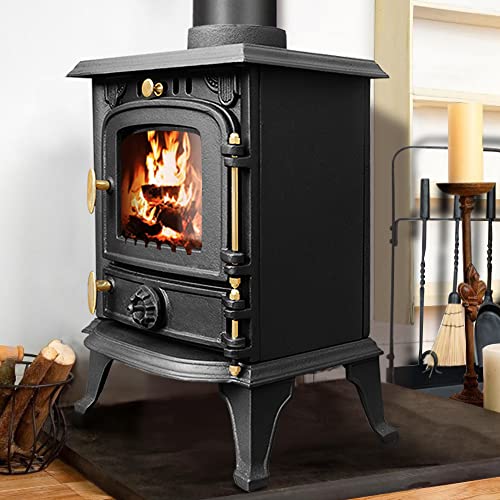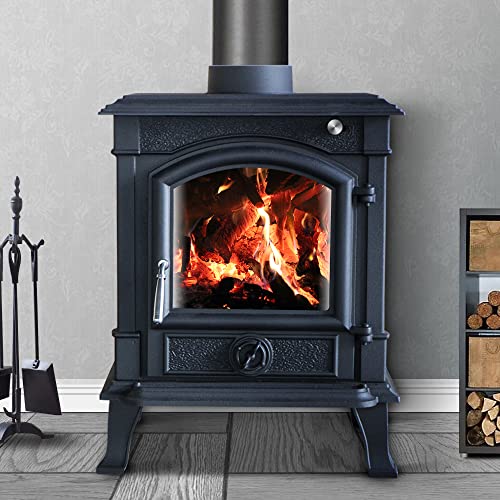15 Things You've Never Known About Defra Exempt Wood Burner
페이지 정보
작성자 Celsa Dostie 작성일24-05-28 14:24 조회20회 댓글0건관련링크
본문
 Choosing a Defra Exempt Wood Burner
Choosing a Defra Exempt Wood Burner Most UK cities and towns are classified as Smoke Control Areas so if you live in one and want to install a wood stove then you need a Defra exempt stove. You can identify them by their logos that are Defra-approved.
Most UK cities and towns are classified as Smoke Control Areas so if you live in one and want to install a wood stove then you need a Defra exempt stove. You can identify them by their logos that are Defra-approved.The stoves that are not subject to Defra are designed to prevent the fire from smoldering. This reduces the amount produced of smoke. They also burn fuel more efficiently.
What is what is a Defra Exempt Stove?
A Defra Exempt stove is a wood-burning domestic heating appliance that has passed the tests set out by the Department for Environment, Food and Rural Affairs. The DEFRA Recommended Stoves Exempt label is applied to stoves that have been independently tested and have met the strictest standards for emissions. The stoves that are Defra Exempt are able to be used in Smoke Control Areas.
You can't burn wood without a DEFRA-approved stove when you live in an area where smoking is controlled. If you install a non-DEFRA approved stove in a smoke-control area, you could be in violation of the Clean Air Act and could be charged.
There is not much difference from the outside of an appliance that is Defra approved stove and one that does not have this status. There are however a few ways that stove manufacturers can use to make their appliances DEFRA exempt. The most obvious distinction is that the burners on a DEFRA approved stove are designed not to starve the flame of oxygen, because this could cause it to smolder and produce excessive amounts of smoke.
To prevent this, manufacturers will adjust the top air vent of a stove that is Defra-approved. This will stop you from being able to shut the vent completely down, as it will cut off the flow of air to the fire. The adjustment is typically an insignificant screw located inside the front top of the stove, low Emissions stoves below the stove's base or on the back of the oven.
Stoves that are exempt from Defra exemption tend to also be multifuel stoves, and can be used to burn wood, as well as other fuels. This is a great option if you reside in an area that is designated as a Smoke Control Zone but you don't want to be bound by to be restricted to only using approved fuels. Certain stoves that are exempt from Defra exemption can also be fitted with five" liner for wood burning (if the manufacturer doesn't demand a bigger size). This is a great benefit for those who want to install woodburning stoves but are concerned about local regulations regarding smoke.
What are the advantages of a Defra-Approved Stove?
In addition to complying with local regulations and supplying a warm cosy fire, Defra approved stoves can provide many other advantages. For instance, they are likely to be more efficient than non-Defra certified stoves and consequently reduce the amount of carbon emissions when used. This can result in significant savings on your heating bills. Defra-approved stoves are also easier to use and have easier controls than non-approved stoves.
When buying a multi-fuel or wood-burning stove, there are a variety of different aspects to take into consideration, including your needs for heating, aesthetic preferences, and long-term goals. It is crucial to take these aspects into consideration when choosing a stove, and opting for a stove that is exempt from defra is an excellent choice for those who live in areas that are smoke-free. They have been thoroughly tested and conform to strict environmental guidelines, and can aid in reducing the impact that your stove has on the environment.
Apart from complying with environmental standards, Defra approved stoves are also designed to offer superior combustion and flame spread. This ensures that the fuel burns evenly and produces more pleasing and consistent flame. In addition they are more durable than non-Defra certified stoves, meaning they will last longer and are able to stand up to higher temperatures.
Most stoves that are Defra-approved are able to use a 5 " liner for chimneys, which is perfect for homes located in areas that are smoke-free. It is crucial to keep in mind that if you decide to use your stove with damp wood or other damp fuels the stove will still emit unpleasant fumes and may lead to prosecution by the local authority.
To get Defra approval stove manufacturers need to make adjustments to their appliances to limit the amount of air that can be deprived during the burning process. The air control on the top is usually altered to prevent the entire closure. Closing the air supply to a stove for too long could cause it to smolder instead of burning properly and, in turn, result in nuisance smoke.
What is the Difference Between an approved Defra Stove and a Non-Defra Approved Stove?
A defra-approved stove will allow burning wood legally within a Smoke Control Area. However, nondefra-exempt stoves won't. Stoves that are approved by Defra have passed tests that show they can burn wood safely and efficiently in smoke-controlled areas, without producing excessive quantities of smoke. This means that even if you reside in a smoke control area you will be able to use your new stove without possibility of paying hefty fines.
A Defra-approved stove is also more efficient in terms of energy consumption than other types that produce more heat while emitting less harmful emissions in the atmosphere. This makes them an excellent option for homeowners looking to cut down on heating bills and who are concerned about the environment.
Stoves that are Defra approved will typically be advertised with the Defra Approved logo which is well-known and has been adopted by the stove industry. You can also determine whether a stove is Defra exempt by checking the specifications or visiting the manufacturer's website.
When choosing a Defra approved stove, it is essential to think about the style you want since there are a myriad of options available. Some are more traditionally styled and look stunning in an old fireplace chamber or inglenook. Other stoves are more contemporary and will fit in a modern home.
You should also make sure that the stove you select is Defra exempt by making sure that it is on DEFRA's list of approved appliances, or by making sure whether it is stamped with the DEFRA exemption logo. Many manufacturers will boast that their stoves are Defra-exempt however they haven't been tested. This is due to the fact that it is much easier to sell a stove that features the Clean Burn technology than to test it and take the time and expense to undergo the process of becoming Defra exempt.
The stove will be exempt from Defra regulations, making sure that the wood that is used as fuel for it is sustainable and properly dried prior to burning. This will mean that it is less likely to produce large quantities of smoke, which is beneficial to the environment and helps keep the chimneys and flue systems in good condition for longer.
What is the difference between an exempt stove that is Defra-compliant and a non-Defra exempt stove?
When you are deciding on the right stove for your home, there's a lot of information that you must take into consideration, including design, heat output, and fuel type. You might be aware that a number of the wood-burning and multi fuel stoves on our website are described as DEFRA exempt or DEFRA approved. This is jargon that to the average homeowner, may seem like a marketing phrase. However it is a significant issue for those living in areas that are smoke-free.
To ensure compliance with the laws against the sale of wood within Smoke Control Areas Defra exempted wood burners come with an internal mechanism that prevents you from closing the air supply valve completely. If you cut down the air flow to the fire in excess, it will cause the wood to smoulder and emit smoke. This is in violation of the law. To prevent this from happening make sure that the wood is dried thoroughly prior to use in the stove.
You can also make use of an DEFRA stoves ratings exempt wood burner within a Smoke Control Area if you only burn the approved fuels that are listed on the DEFRA website. This includes anthracites, semi-anthracites, gas and steam coal that is low volatile. If you install a stove that is not DEFRA-compliant in your home and use wet wood, or any other fuels not on the DEFRA's list, you could be subject to penalties of up to PS1000.
Even if you don't live in a Smoke Control Area and you are not in a Smoke Control Area, a DEFRA exempt wood burner is a good choice as they are generally more eco-friendly and neighbour friendly since they operate without creating polluting smoke. They also have higher efficiency and will keep your chimney system and flue cleaner for longer. However, it should be noted that by 2022 all new stoves have to meet the stricter Ecodesign regulations which set minimum efficiency, OGV and NOX ceilings, and have emission limits that are much higher than those currently in place for DEFRA exempt appliances.
댓글목록
등록된 댓글이 없습니다.




